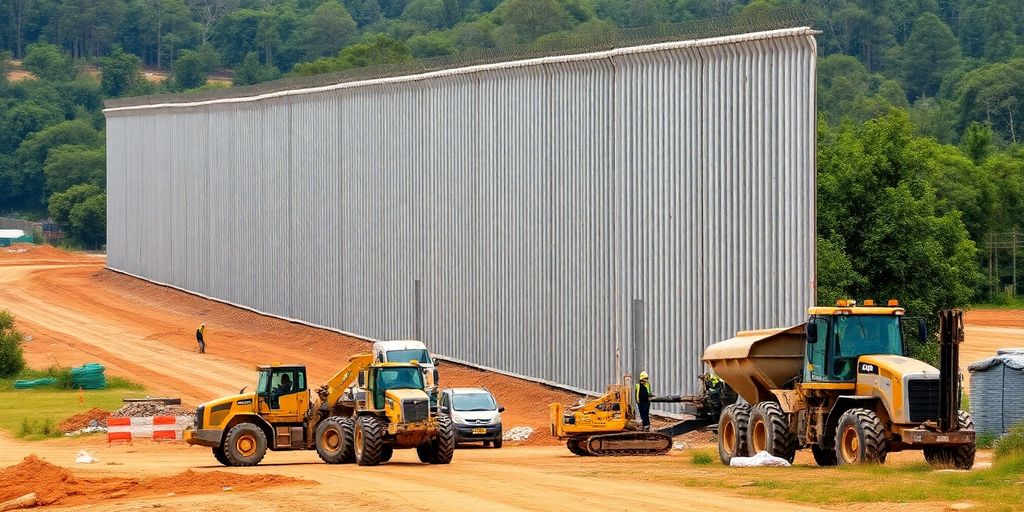Turkey has announced plans to construct an 8.5-kilometer wall along its border with Greece, marking a significant step in its efforts to control migration into the European Union. This initiative comes as part of a broader strategy to enhance border security amid rising concerns over illegal crossings.
Key Takeaways
- Turkey will build an 8.5-kilometer wall on its western border with Greece.
- The wall aims to prevent illegal migration and smuggling into the EU.
- This is the first permanent wall Turkey has constructed on its western borders, following similar projects on its eastern borders.
- The project is supported by Turkey’s Interior and Defense Ministries.
Background of the Border Situation
Turkey shares a 200-kilometer (120 miles) border with Greece, primarily defined by the Evros River. This river has historically served as a natural barrier, but it has also been a route for migrants attempting to enter Greece and, by extension, the EU. In recent years, both Greece and Bulgaria have fortified their borders with extensive fencing to deter illegal crossings.
In 2012, Greece erected barbed wire barriers along parts of its border, which have since been expanded. The current Greek government has pledged to extend its border fence to over 100 kilometers by 2026, reflecting a growing trend among European nations to tighten border security in response to migration pressures.
Details of the Wall Construction
Edirne Governor Yunus Sezer announced that the wall will be constructed in phases, starting from the border with Greece. The initial phase will cover 8.5 kilometers, with the possibility of future extensions depending on the migration situation. Sezer emphasized that this wall represents Turkey’s first physical security measure on its western border, a significant shift in its border management strategy.
The construction will be supported by the Interior and Defense Ministries, which are also enhancing surveillance capabilities along the border. This includes the installation of electronic monitoring systems and additional fencing to further secure the area.
Implications for Migration
Turkey’s decision to build a wall comes in the wake of a tragic incident in February, where six migrants drowned while attempting to cross to Greece. Such events have highlighted the dangers faced by migrants and the urgent need for effective border management strategies.
The wall is expected to deter not only migrants but also smuggling operations that have flourished along the porous border. Turkey has previously faced criticism for its handling of migration, particularly during the 2020 border crisis when it allowed migrants to cross into Greece, leading to tensions between the two nations.
Regional Context
The construction of the wall is part of a broader trend in the region, where countries are increasingly investing in border security. Bulgaria has also built a razor-wire fence along its border with Turkey, which has been extended to cover nearly the entire 259-kilometer border. This reflects a collective effort among neighboring countries to manage migration flows and enhance national security.
As Turkey moves forward with this project, it will be closely watched by both domestic and international observers, as it could set a precedent for future border management policies in the region. The effectiveness of the wall in curbing illegal migration will likely be a key measure of its success in the coming years.
Sources
- Turkey to build first wall on Greece border, The New Arab.
- Reports: Turkey Also Building Fence on Border With Greece, tovima.com.
- Turkey to erect wall along part of border with Greece, InfoMigrants.






